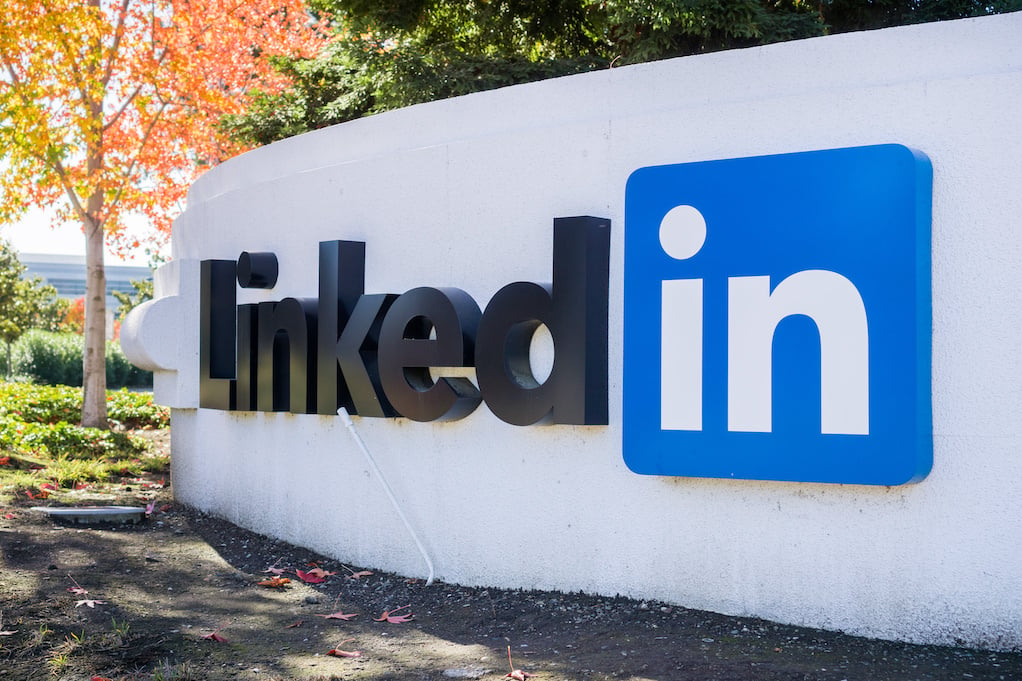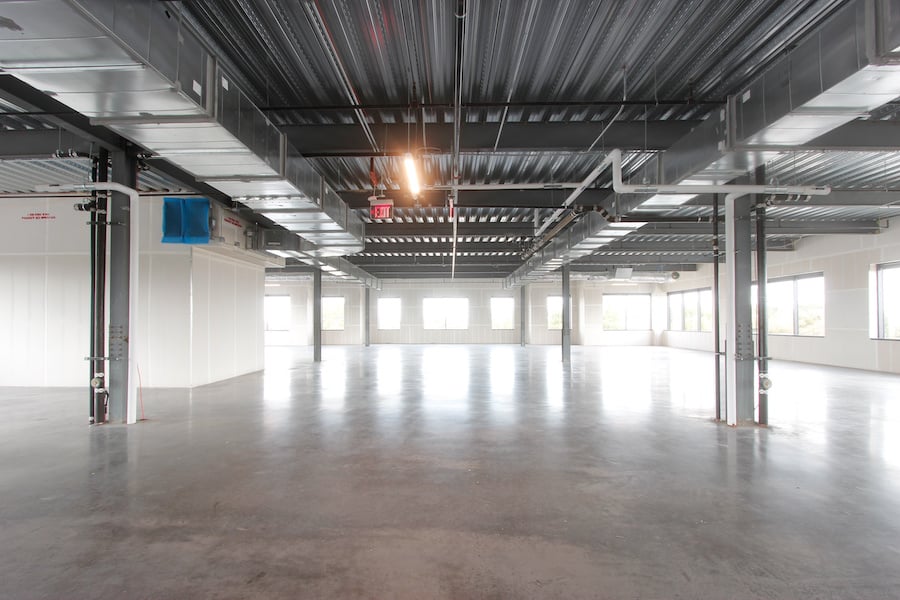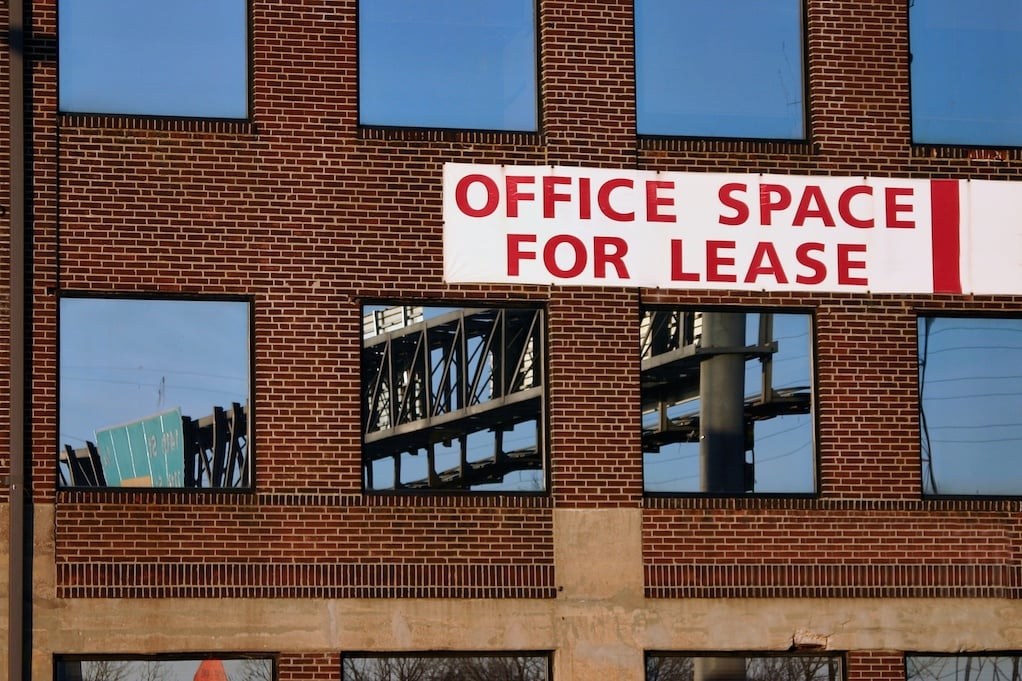If you haven’t been living under a rock lately, you know that the country’s current economic state is dismal (to say the least).
So instead of wasting any more time and money wondering what to do, let’s talk about how we can use the financial crisis to your advantage.
As Tenant Reps, we have been in the commercial real estate industry for over three decades. This means that we’re no rookies when it comes to economic crises. We have seen how fluctuations in the market have affected our corporate clients and their CRE portfolios. As a result, we know how to navigate these crises to their benefit.
We’re not saying the crisis is a good thing- far from it. But savvy tenants, making the right real estate moves, can reduce their overhead and improve their bottom line (even in a recession).
We would have trouble believing this was true had we not accomplished it ourselves...So we'll give you insider tips earned from decades of market knowledge that have helped clients preserve or improve their bottom line regardless of the country's overall economic state.
1. The Perfect Storm for Corporate Tenants
2. The Importance of Optimized Space Utilization
3. Renegotiate Your Commercial Lease Now
The Perfect Storm for Corporate Tenants
We’ve said it once, we’ll say it again. We are not dealing with any old recession.

Of course, the market is struggling but coupled with the emergence of the remote working phenomenon, it seems commercial real estate is getting hit on all sides. Mass corporations have taken a step back to assess whether they need the same amount of physical spaces they did in years prior, and for many, the answer is no.
CRE demand is pretty much at a record low. However, what’s the inverse of this? The value of corporate tenancy is at a premium.
If you are thinking about renegotiating your current lease, or looking for new office space, check out our free video course, to make sure you don't make costly mistakes.
Commercial Real Estate Looks Different
The commercial real estate sector isn’t dying- it’s adapting. The power is shifting from landlords to tenants. And tenants are getting more creative with their space utilization.
Take for instance, Linkedin. They are not resisting change; they are jumping in with both feet to build the workspace of the future.

In the words of their interior design principal, “we imagined that not everyone is going to come to work 8 hours a day.” So rather than fight this truth and pressure employees to return to physical spaces, they have designed a flexible office that encourages hybrid work.
So – what did they do??
They cut the number of desks in half. With the reinvigorated space, they made room for non-traditional seating options.
All said and done, they are experimenting with over 75 seating types that accommodate both alternative and traditional working preferences.
|
Bottom line? Tenants have more freedom to assess how their CRE fits their needs and culture. |
If your space isn’t perfect, you can get it as close as possible by skillfully negotiating. If you're willing to stay in your space but know it can be improved through a redesign, why not ask your landlord for a reinvigorated tenant improvement allowance?
They may be willing to fund renovations or adjustments to your space if they know you’re in it for the long haul.
The Importance of Optimized Space Utilization
So, corporations are adjusting their commercial spaces to account for contemporary work models. However, regardless of how much you redesign, you may still have extra space.
If you still plan to utilize your commercial properties, you can likely benefit from downgrading their scale. Since adopting hybrid/WFH models, many companies are paying millions for space that they are underutilizing.
If this sounds familiar, what are you waiting for? Right-size your space.

Consider the number of seats you need (notice we said seats- not employees) and multiply it by about 200 square feet per seat. The number you arrive at is your optimal space utilization. If you run your current numbers and it is not the same as the ideal metric, you can save big by making improvements.
So, if you find that you could benefit from downsizing… what can you do?
...
Renegotiate, Renegotiate, Renegotiate
The value of renegotiating your lease cannot be overstated (especially if you have extra space). Unfortunately, many tenants believe that they must be at the end of their term to be in a place to renegotiate.
This is simply not true. In fact, as a longstanding tenant, you have more leverage to introduce your preferred terms to your landlord. You already have an existing relationship with the landlord. Therefore, they may be more willing to renegotiate to keep your reliable income and presence.
You have the freedom to express your wants, needs, and demands for your corporate space. This is particularly true if you are several years into an existing lease.
The chances are that the market looks completely different since you signed your lease. Therefore, the terms, price, and size you signed on may have been advantageous at the time, but you are no longer getting the best deal.
For instance, if you signed your lease-say- seven years ago... you’re paying through the nose in compounding rental escalations. But not only that. You likely signed on for a base rent much more expensive than it is now.
In today’s condition, you could save millions by reducing your rent to market value.
The Key to a Successful Renegotiation
If you don’t need as much space, you may be able to negotiate for smaller square footage. However, don’t expect your landlord just to cut your space. You signed a binding financial agreement. They have no benefit from letting you slash your square footage. The renegotiation also has to be worthwhile for them. This is key to keep in mind.
As such, be prepared to offer your landlord a show of good faith. This usually comes in the form of an extension of your current lease. If you sign on for a longer-term, your landlord will be more willing to concede to smaller square footage or more perks going forward.
Why? A longer term for them means a more sustained cash flow. This is especially pertinent as CRE demand has plummeted.
Your tenancy represents guaranteed income without the need to remarket and renovate the space for new tenants.

For landlords, finding new credit-worthy tenants for a long-term lease is not guaranteed right now. So, they will likely be happy to accommodate your new requests in exchange for a longer-term.
What You Can Achieve With Renegotiation
As discussed, be prepared to offer something to your landlord. It could be a longer-term or even taking on more space in their property.
They will be glad to fill up any vacant space under their responsibility. What can this do for you- well, how do the following sound?
- Reset your rent to market value
- Renegotiate your rental escalation type
- (if it’s according to the CPI- Get out!)
- Cut your space
- Get a better sublease clause
- Negotiate for a refurbished TI $
- Include another period of rent abatement
Remember, negotiation is key. What you get is what you give. You have the potential to do all these things. But it will hinge on factors like the demand for space in your area, how long you’ll stay, what would be the most efficient result for your company, and how much space you’re willing to take up.

You have options... it doesn’t have to be a cut-and-dry space cut.
Let’s say you want to be like LinkedIn and experiment with your office setup – you can get more TI dollars to build the environment you need, perhaps if you sign on for a longer stay.
Landlords, too, will be looking to go with the times and work with contemporarily minded tenants. They will be looking to stay ahead of the trends and remain desirable to tenants in a new corporate world. Remember, many improvements made during your stay may still exist after you leave. As such, it may be in their best interest to fund renovations.
If you considered redesigning your office but still will need to cut down space, you can slash your square footage.
You have the power to introduce the terms that work for your budget the most.
Renegotiate with a Tenant Rep
There’s never been a more critical time to streamline your portfolio. And when you go into renegotiation, you want to trust your knowledge and level of preparation.
Even sophisticated tenants still may only enter the market once every five years. On the other hand, landlords are in the commercial real estate world nearly every day. To get the best terms and price, level the playing field with a tenant rep.
Working with a Tenant Rep is as if your company had a surrogate real estate department. You can offload your CRE responsibilities and stresses to trusted hands that only have your best interests in mind. As experts in negotiation, tenant reps are empowered to secure you the best possible solution for your commercial renegotiation.
Don’t become complacent in a space that is actively losing money. Work with a tenant rep to renegotiate your commercial lease and dramatically improve your workspaces and bottom line.
Landlord won't renegotiate? Relocate your CRE to business-friendly areas to save millions.
Need help? Talk to a rep today.









